The College’s Title IX team, including Vice President for Strategic Planning and Title IX Coordinator Angela Voos, Associate Vice President of Student Affairs Andrea Conner, Dean of Religious Life Deanna Shorb and other staff members, released a new draft of Grinnell’s Sexual Misconduct Policy, which was announced via a Special Campus Memo on Wednesday, Feb. 4. The updated draft of the policy includes several changes, such as employing an outside adjudicator instead of a hearing board and refining the 57-page document into a simpler guide.
Dissenting Voices, the student group that originally organized in protest of the “It’s On Us” campaign, first met with Voos and Conner at the end of last semester and presented a list of goals regarding Title IX, three of which they wanted met by Feb. 2 and several longer demands to be discussed over the course of the school year.
The initial requests were informed by how other colleges—such as Colorado College and Drake University—handle cases of sexual misconduct on campus, address prevention of sexual misconduct and the procedure by which cases of sexual misconduct are handled by the College.
There were changes made to the conflict of interest policy—now a student who has been found responsible for sexual misconduct cannot hold a position in which they are responsible for student safety in any capacity. However, members of Dissenting Voices felt that the new guide changes failed to meet requests related to making the student body aware when an incident of sexual assault has occurred on campus, as well as making students aware of penalties and ramifications of committing a sexual assault.
“Why would the College not want to do everything in its power to make this a safe campus?” Dissenting Voices Co-Chair Anna Banker ’15 said. “We just think Grinnell can do better.”
Previously, when a victim-survivor raised charges of sexual misconduct against another student, both students testified in front of a hearing board comprised of one student, one faculty member and one staff member, assembled by Conner. The hearing board was instructed to decide the case with a preponderance of evidence, meaning the accused is more likely guilty than not, as opposed to the common legal standard, which is innocent until proven guilty.
With the new guide changes, the hearing board’s responsibilities will be transferred to outside adjudicators, beginning with former Chief Justice of the Iowa Supreme Court Marsha Ternus. According to Voos and Conner, Ternus has extensive experience in the courtroom hearing cases involving sexual assault, and now practices for a private law firm since reaching the end of her term. While Ternus is the first adjudicator the College has contracted, they may expand that number in the future.
Others involved in the discussion regarding sexual misconduct on campus, including Advocates Dan Davis ’16 and Lisa Stern ’16 alongside the Advocates’ advisors Shorb and Associate Chaplain and Rabbi Rob Cabelli, stated that they are most excited for the change regarding outside adjudication. Voos and Conner added the outside adjudication change partly to ensure that students would remain anonymous on campus.
Before hearing Grinnell College cases, Ternus will meet with two Title IX national experts to inform her of recent changes and developments in national policy, and she will meet with Conner for discussion of the preponderance of evidence standard as used on Grinnell’s campus.
Because Dissenting Voices was originally unaware of which Iowa Supreme Court Justice the Title IX coordinators had chosen, they were uncertain about the idea of outsourcing the adjudication from the College. However, others who have been made aware of the choice, like Cabelli, have expressed confidence in the candidate.
“Viewing all of this through a lens of a male heterosexual perpetrator and a female heterosexual victim is just not at all a description of the multiplicity of relationship types here in which sexual intimacy and sexual misconduct takes place,” Cabelli said. “It’s incredibly important to have somebody who is open to approaching all of these relationships without bias, without presumptions, without assumptions and based upon Judge Ternus’s credentials. I would think that that thought is justified and she is well-situated to do that.”
Cabelli, who has supported both victim-survivors and accused students through the hearing board process and has voiced personal concerns about Title IX Policy to Voos, believes the College needs to continue to educate the campus about issues of alcohol and substance use and how they may affect issues of consent. Dissenting Voices plans to continue meeting with the administration throughout the semester about these issues and others.
“Doing the bare minimum is not an effort to applaud,” Dissenting Voices Co-Chair Linnea Hurst ’15 said.
The guide change regarding conflicts of interest has resulted in the resignation of an SGA student worker and the refinement of SGA’s hiring practices.
“We recognize the benefit of [the changes in policy], and I think safety and making sure everyone is safe and feels safe on this campus is the utmost priority,” SGA President Opeyemi Awe ’15 said.
In solidarity with the Sexual Misconduct Policy changes and with the help of Professor Chris Ralston, Psychology, members of SGA will release a Sexual Climate Survey to get a sense of what campus sentiment and awareness is regarding Title IX policy and sexual misconduct.
Some of the other policies were written as a means of consolidating the guide, according to Voos and Conner. Both started working on these changes based on an annual policy review that is conducted every summer. Following the 2014 summer review, Voos and Conner began working to consolidate the 57-page document, renaming it as a guide and making it more accessible to victim-survivors. They released the changes out of cycle in the middle of the semester, which coincided with student demands for more rapid change.
“The renaming, to many people, won’t feel important, but to us it very much does,” Conner said.
While Shorb was still most excited about the adjudication change, she agreed that victim-survivors who decide to make themselves vulnerable enough to seek support usually want the easiest option available. Some, however, feel that the semantic changes were blown out of proportion.
“I think there’s a lot of anger on campus and there was obviously a need to make the changes, and they were responding to something that the students were bringing up, such as changing the name from the policy to the guidebook, [but they] were sort of blown up to be bigger changes than they actually were, as sort of an appeasement thing,” Stern said.
Despite the mixed feelings on many of the guide changes, student advocates, Dissenting Voices and college staff agree that there is still more work to be done as students continue to voice their opinions with the administration.
“It’s a good thing for student groups to push the administration and for each to deal with the other’s responses to those situations,” Cabelli said. “If the communication is carried out in a positive way by both, it can actually … lead to an establishment of more trust, and I hope that’s the direction we go in.”
Editor’s note: This article has been edited to correct the following inaccuracies. A previous version of this article stated that a student charged with sexual misconduct cannot hold a position in which they are responsible for student safety in any capacity, when in reality only students found responsible for charges of sexual misconduct cannot hold those positions.
A previous version of this article implied that Marsha Ternus would be the College’s only adjudicator of sexual misconduct cases, but others may be hired in the future.
A previous version of this article misidentified Dan Davis ’16, Lisa Stern ’16 and Associate Chaplain and Rabbi Rob Cabelli as members of the Title IX team. They are involved in discussions of how sexual misconduct is handled, but are not a part of the official Title IX team.
A previous version of this article stated that Professor Chris Ralston, Psychology, had worked with cases of sexual abuse and misconduct, and that he had worked with Voos and Conner on consolidating the sexual misconduct policy. In reality, Ralston is working with SGA to release a Sexual Climate Survey on campus.
A previous version of this article quoted Voos as saying “To many people, [the changes] won’t feel important, but to us they do.” In reality, Conner was addressing the renaming of the misconduct policy, and said “The renaming, to many people, won’t feel important, but to us it very much does.”
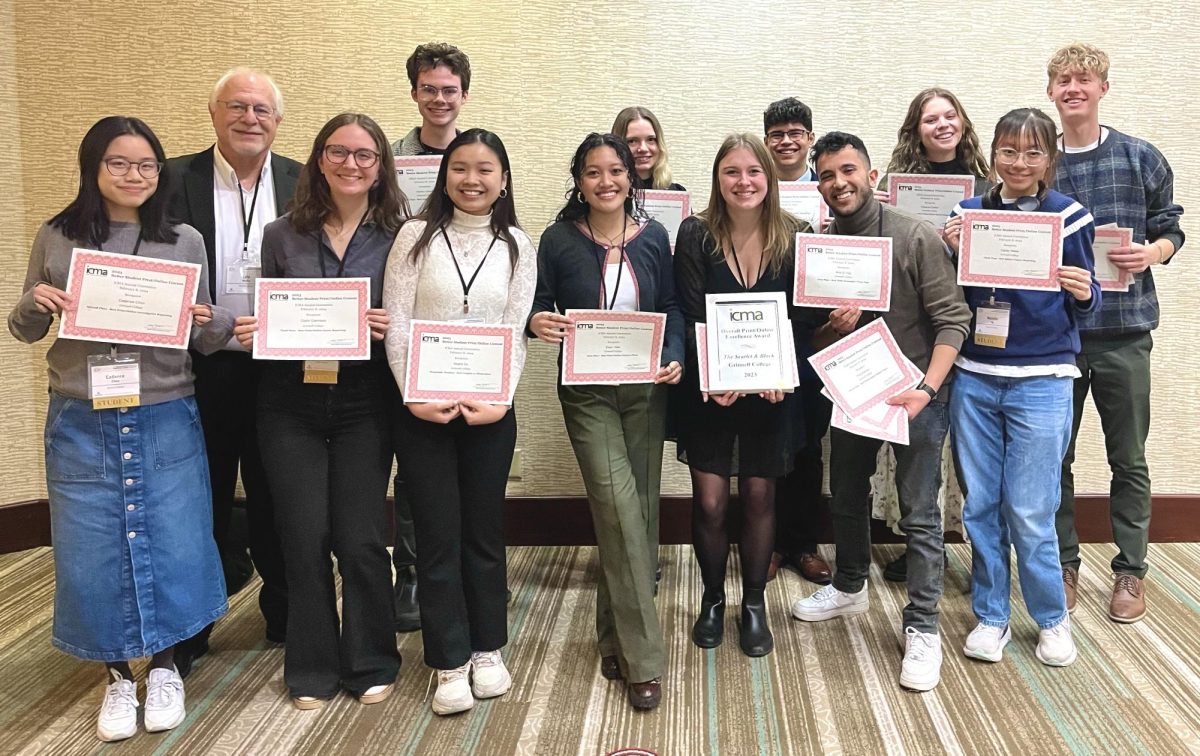


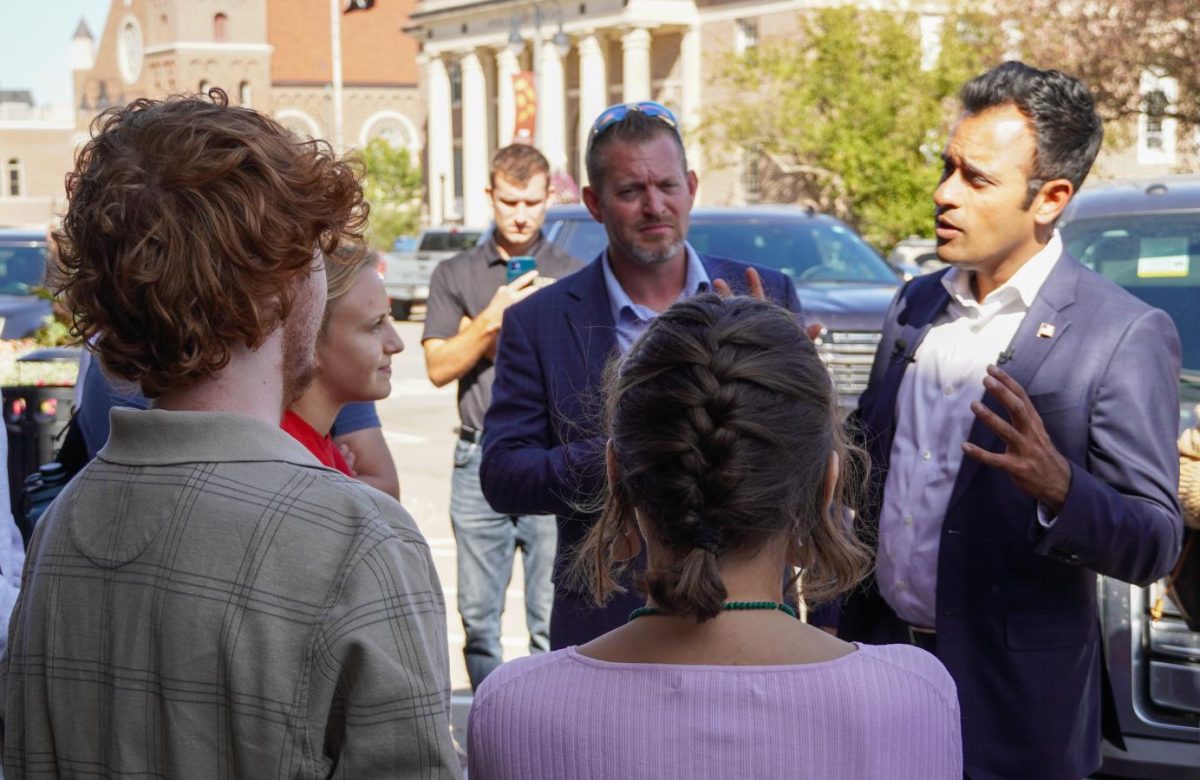

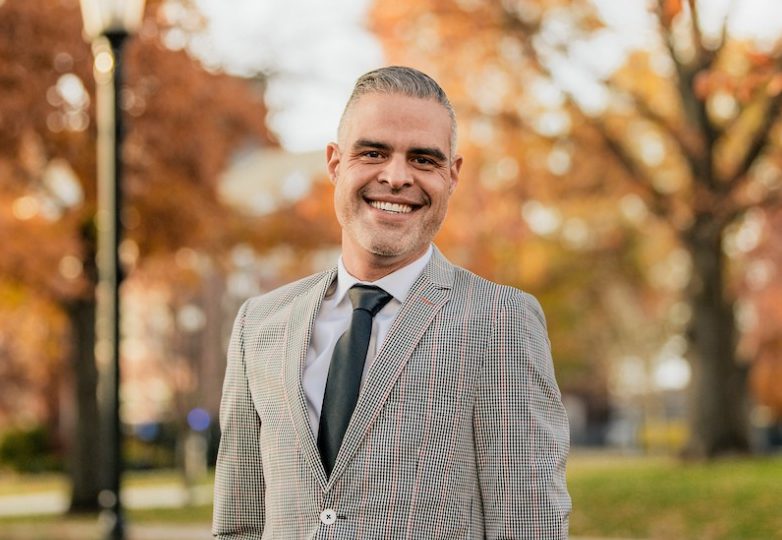

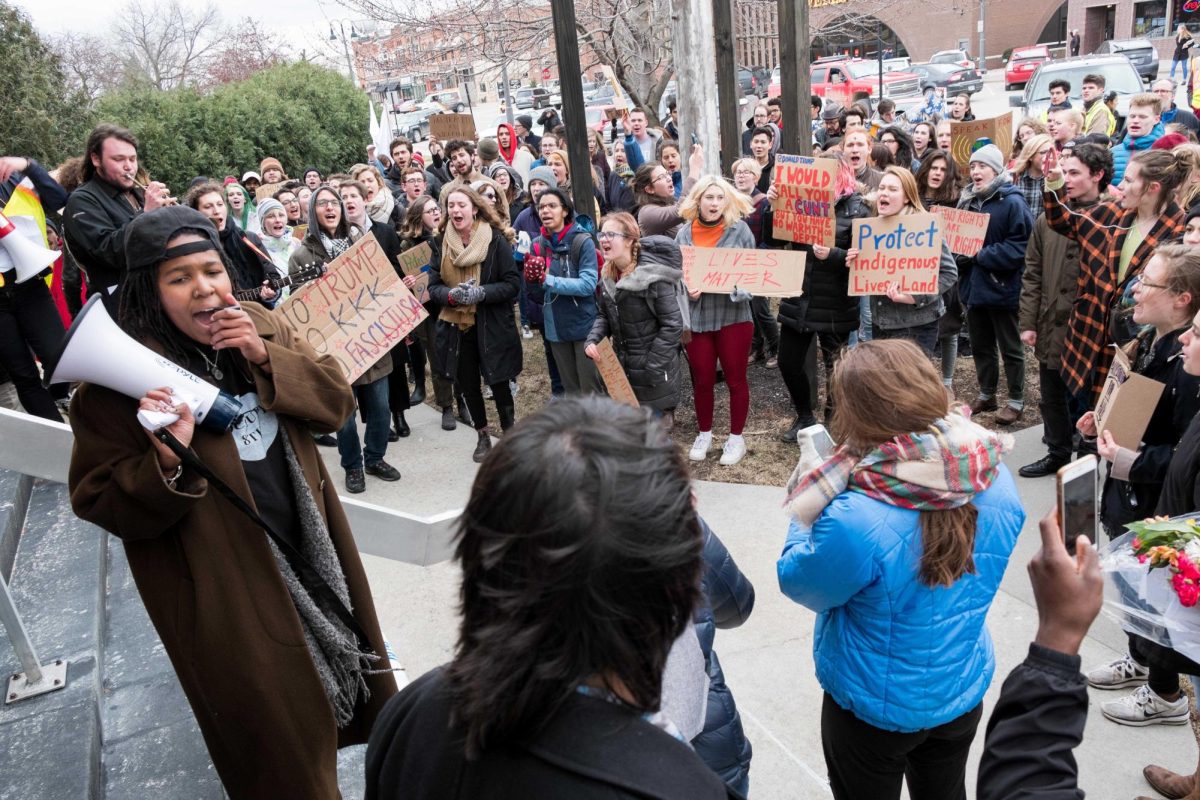
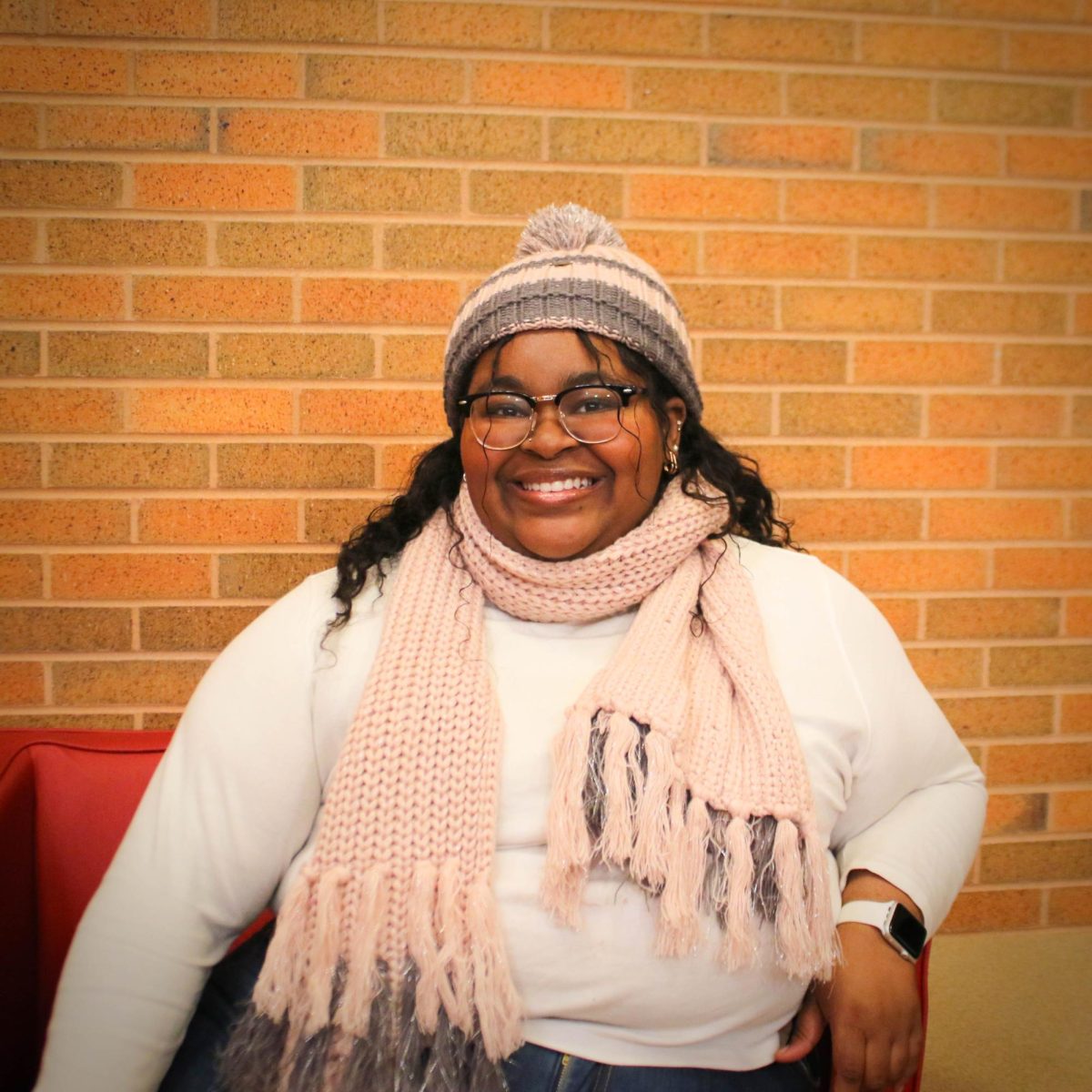
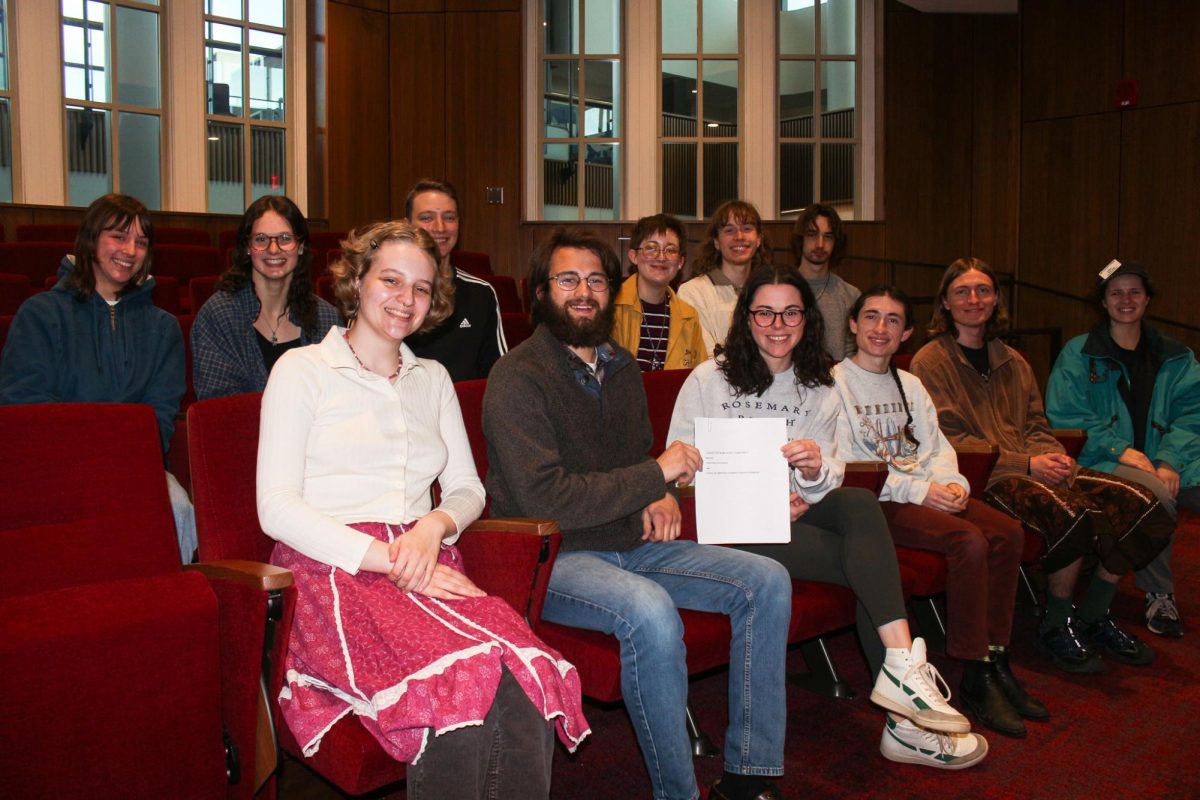



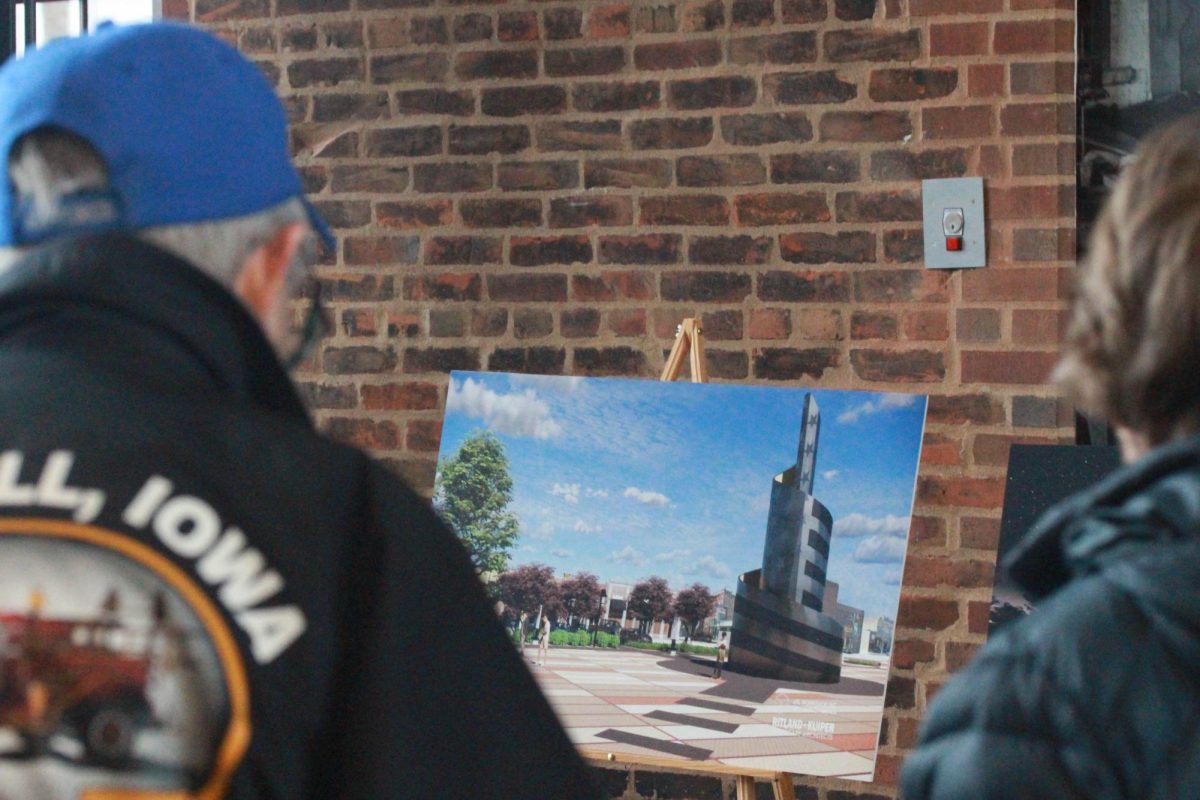








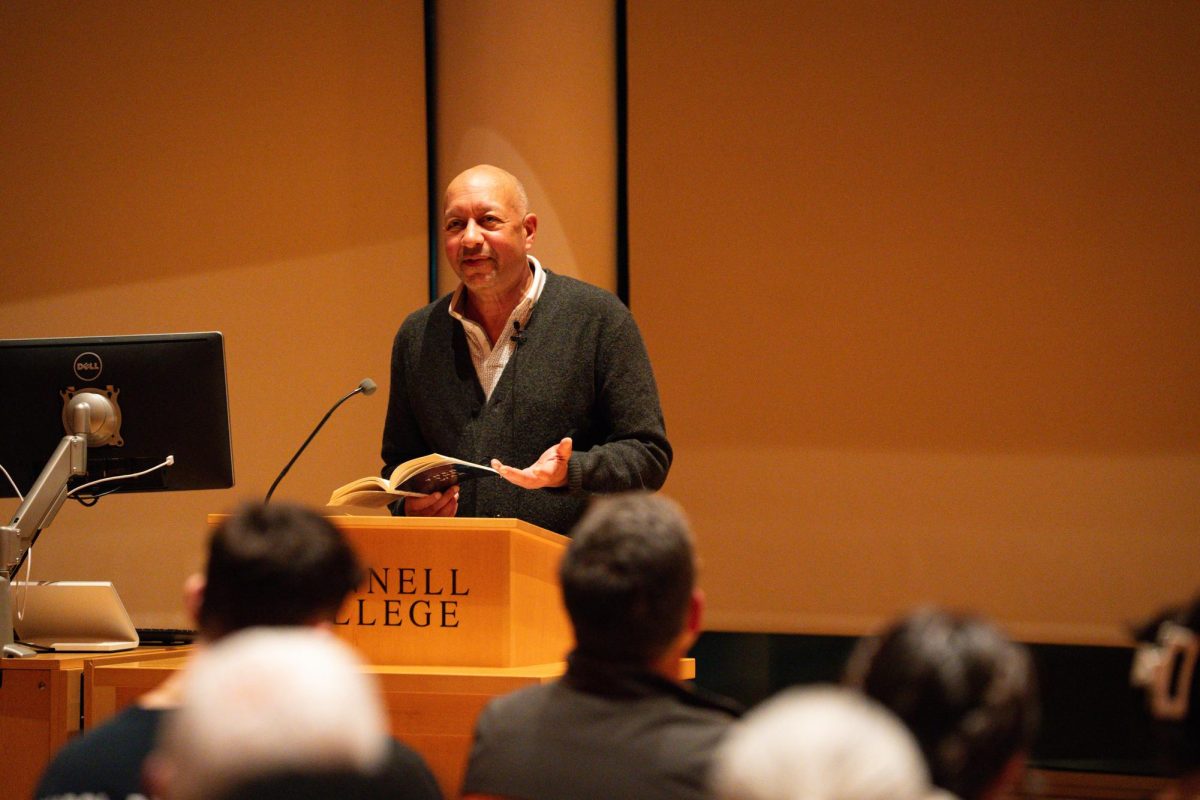
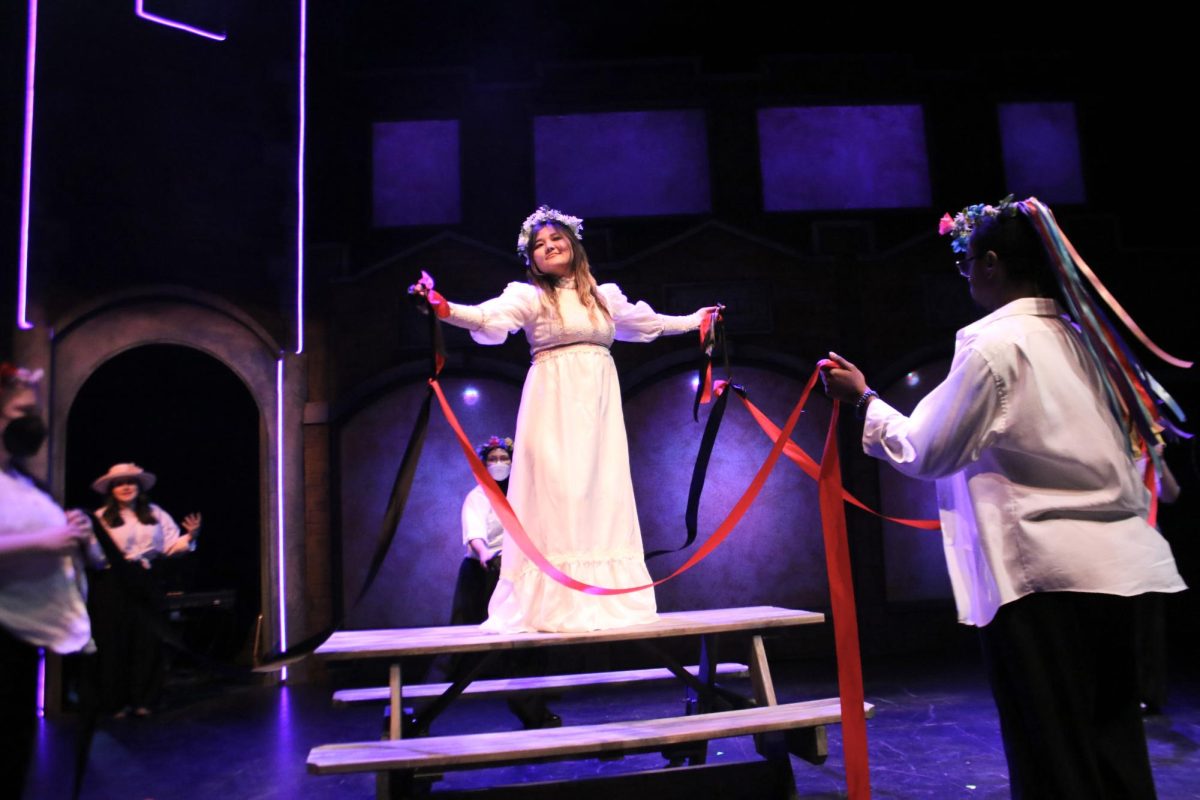
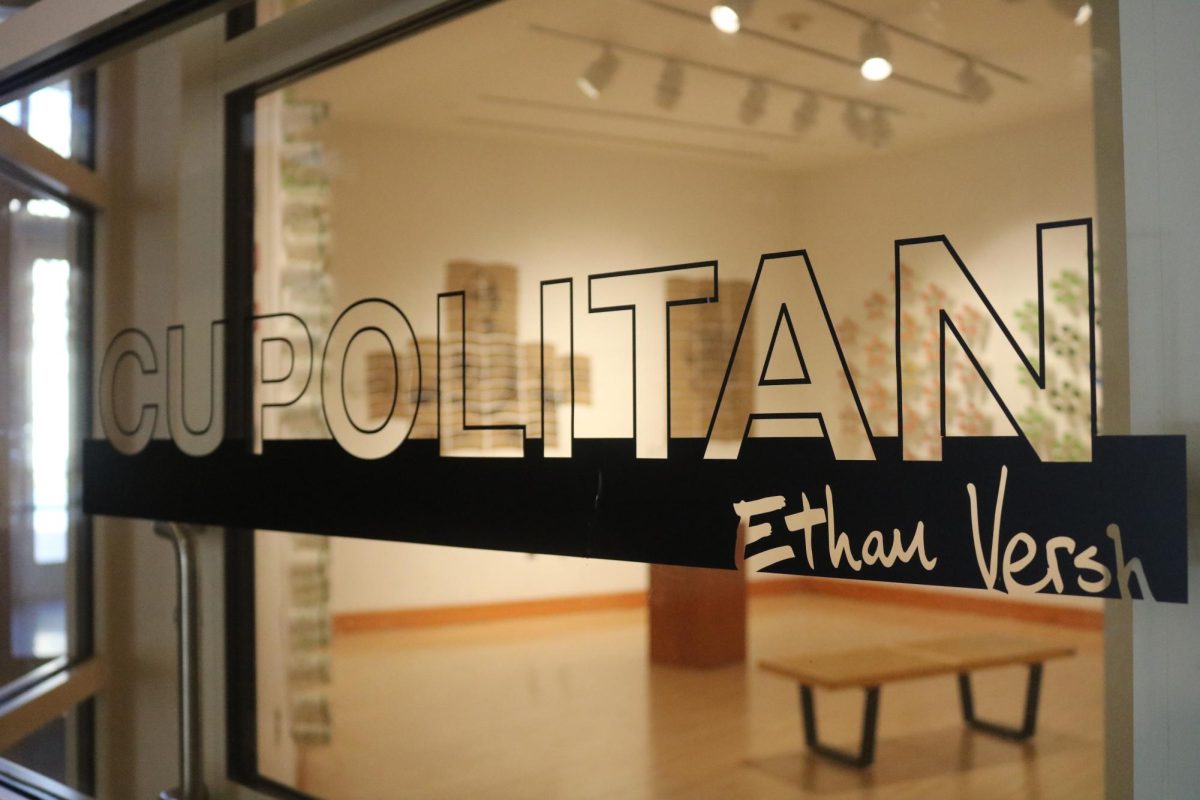


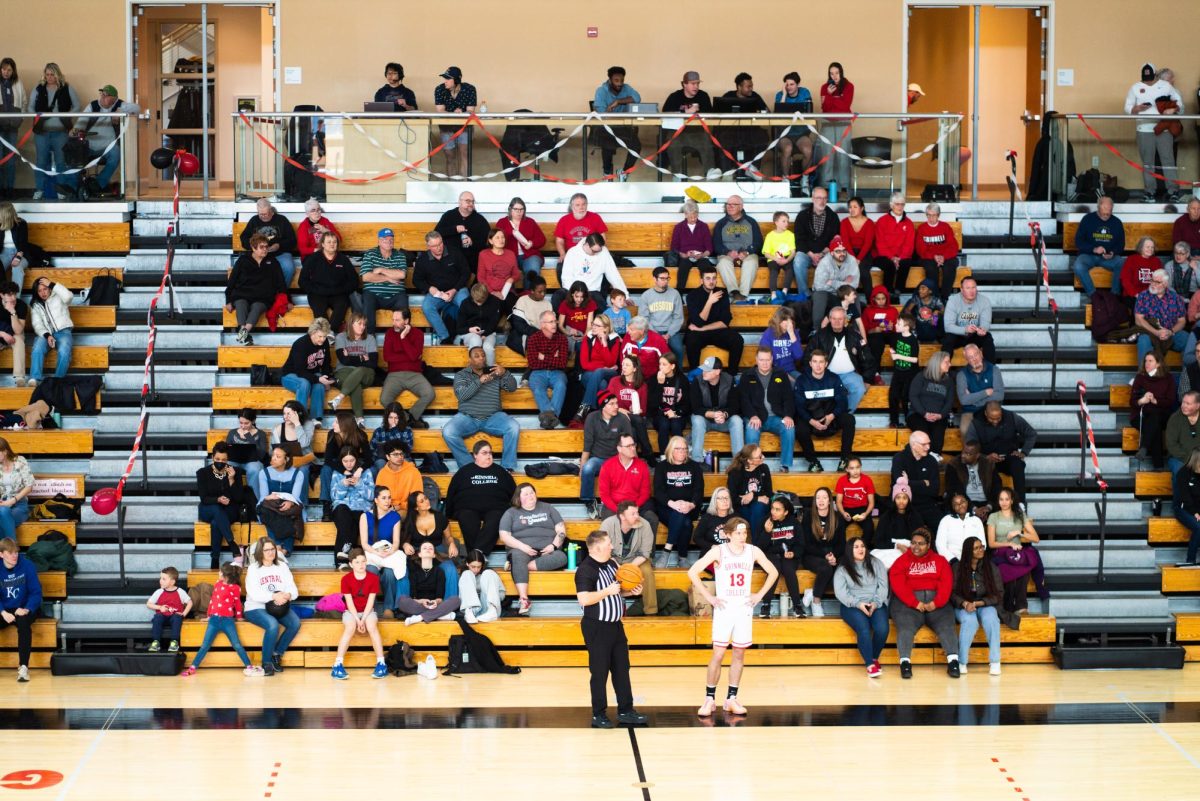

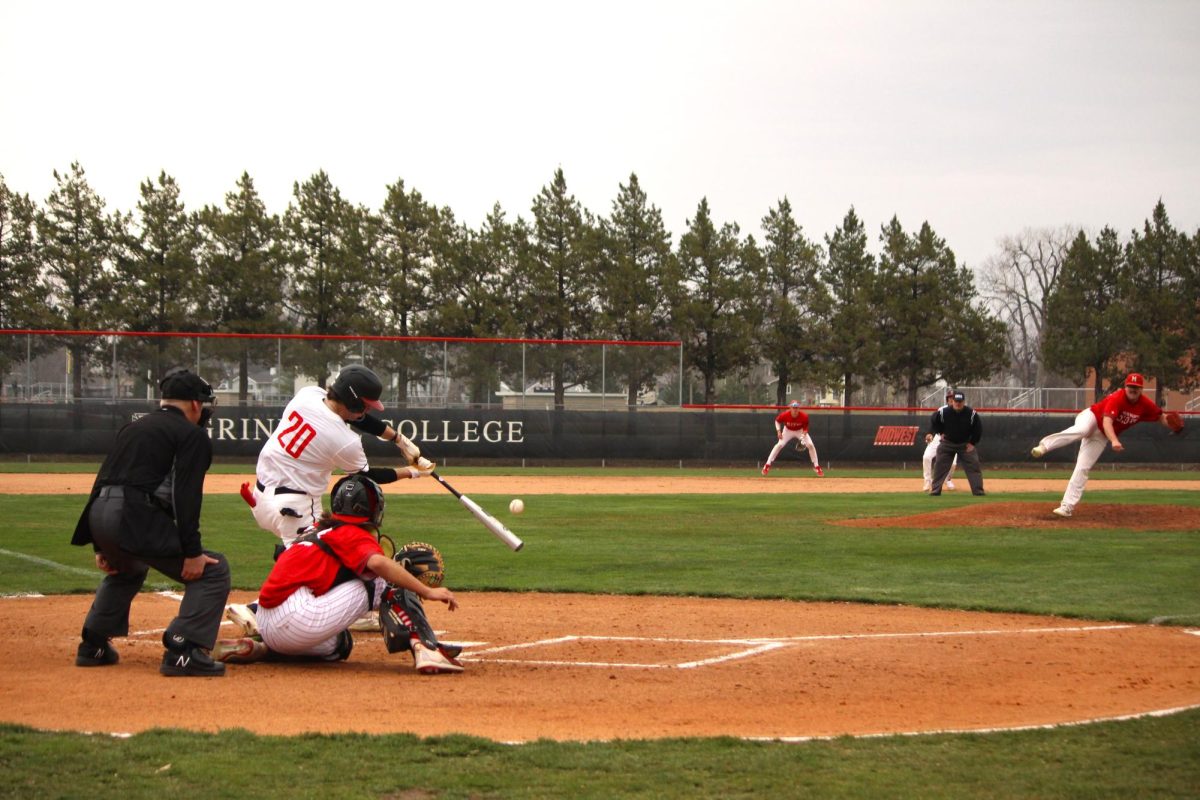

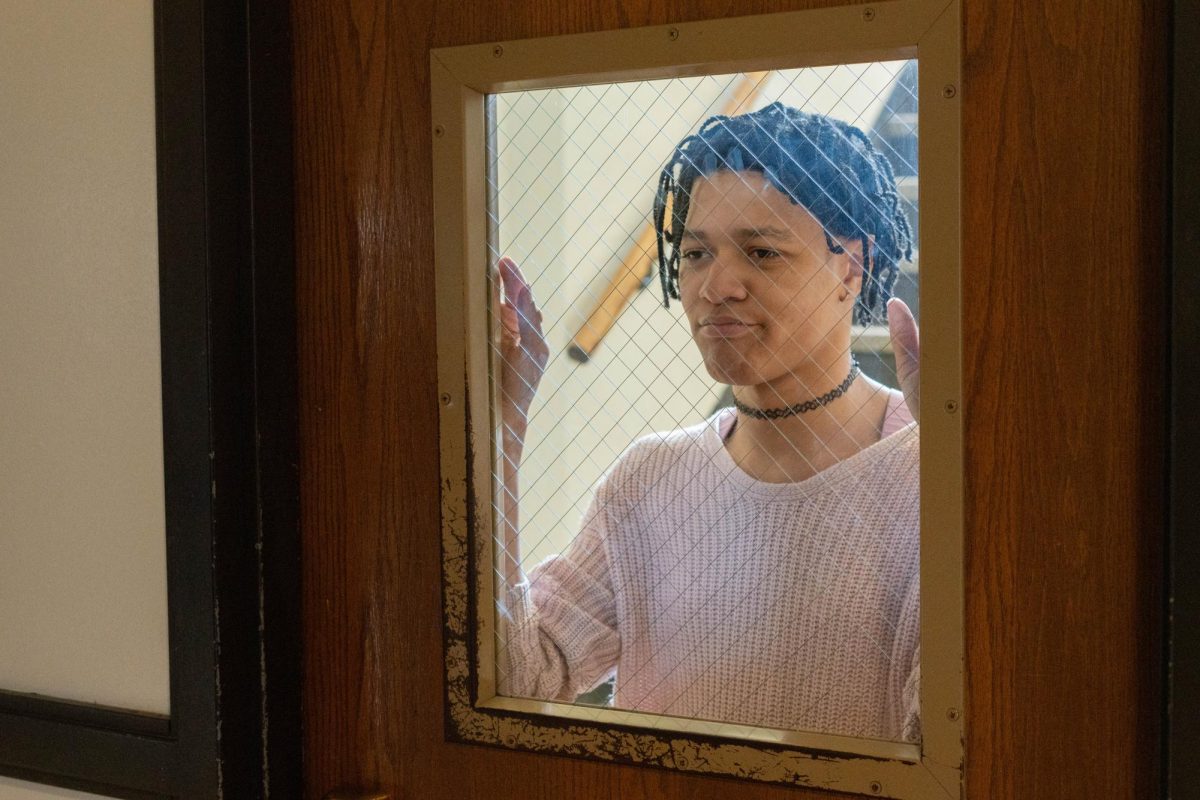

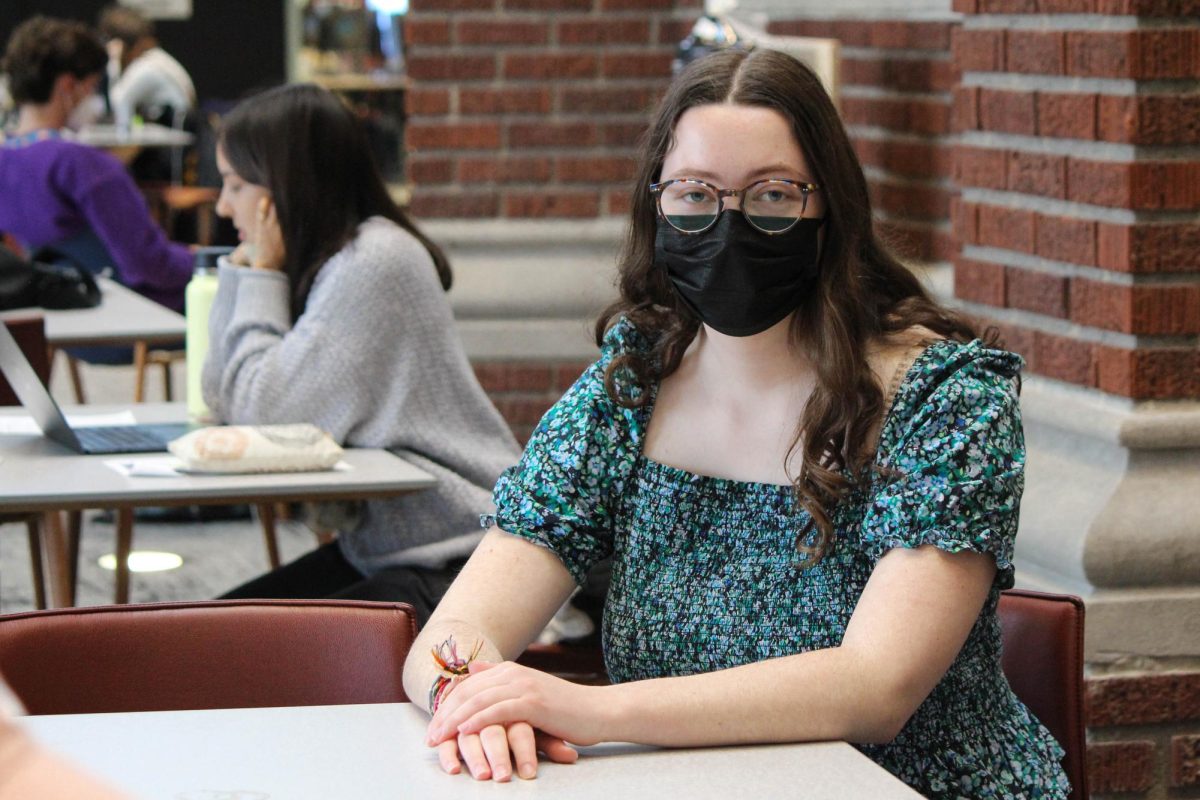



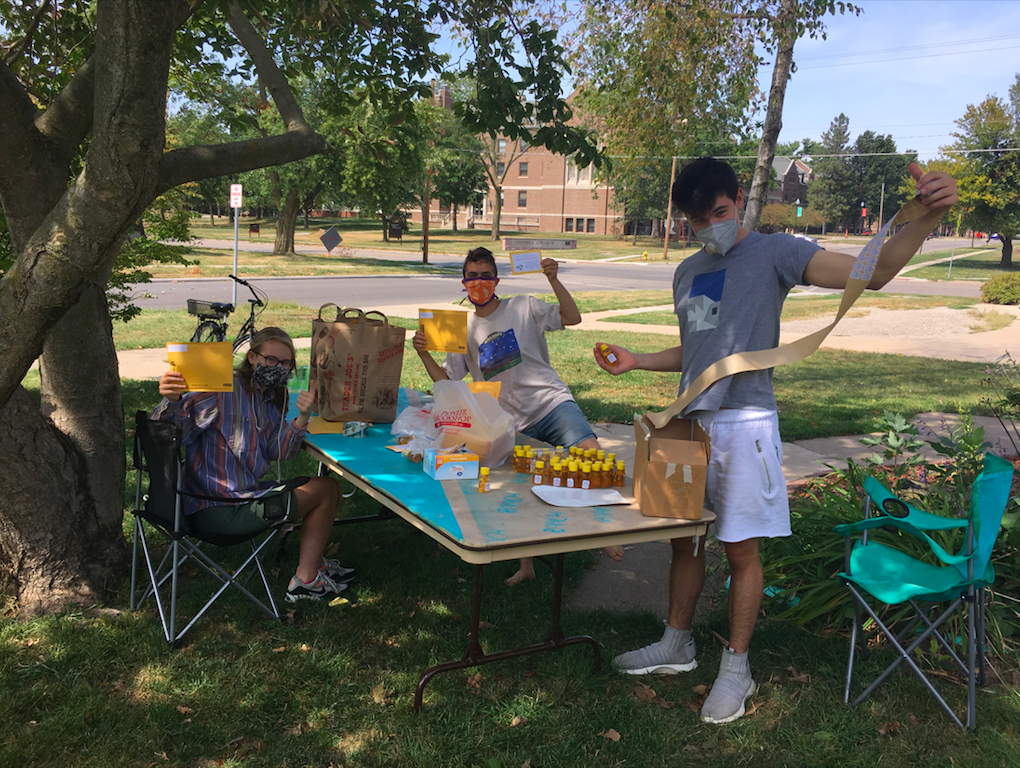






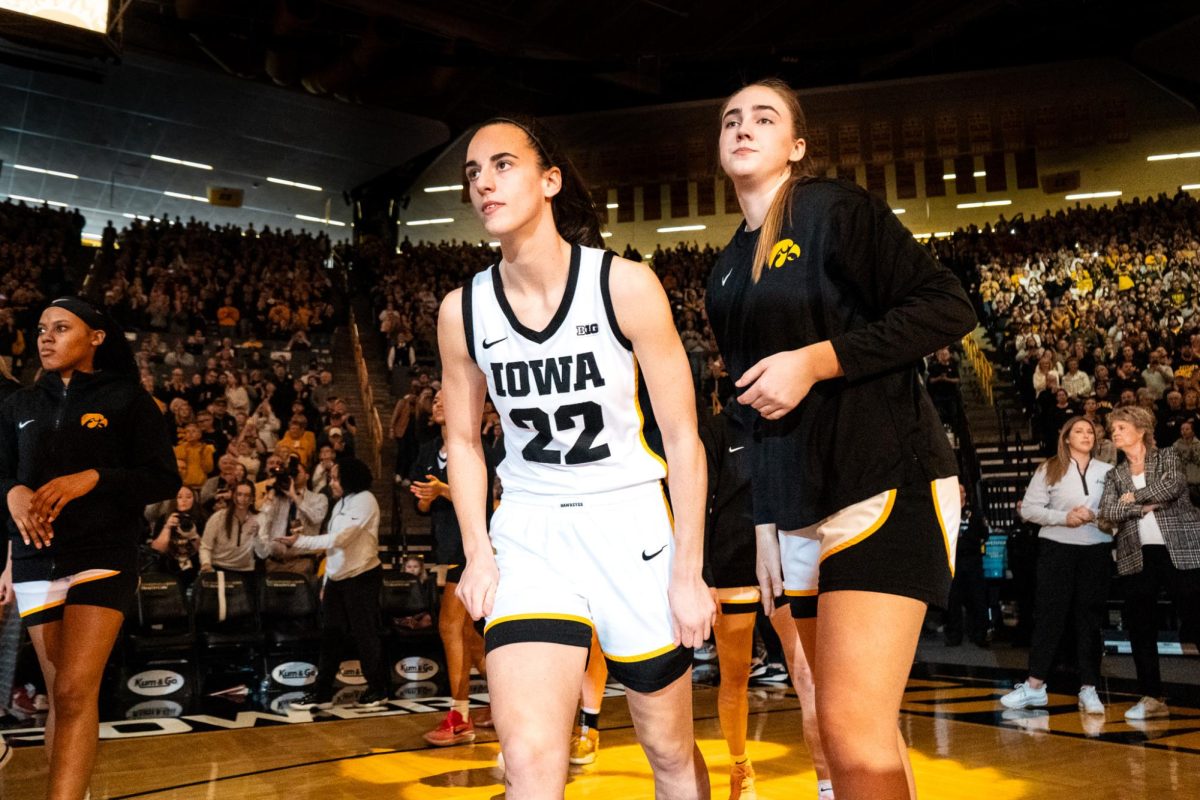

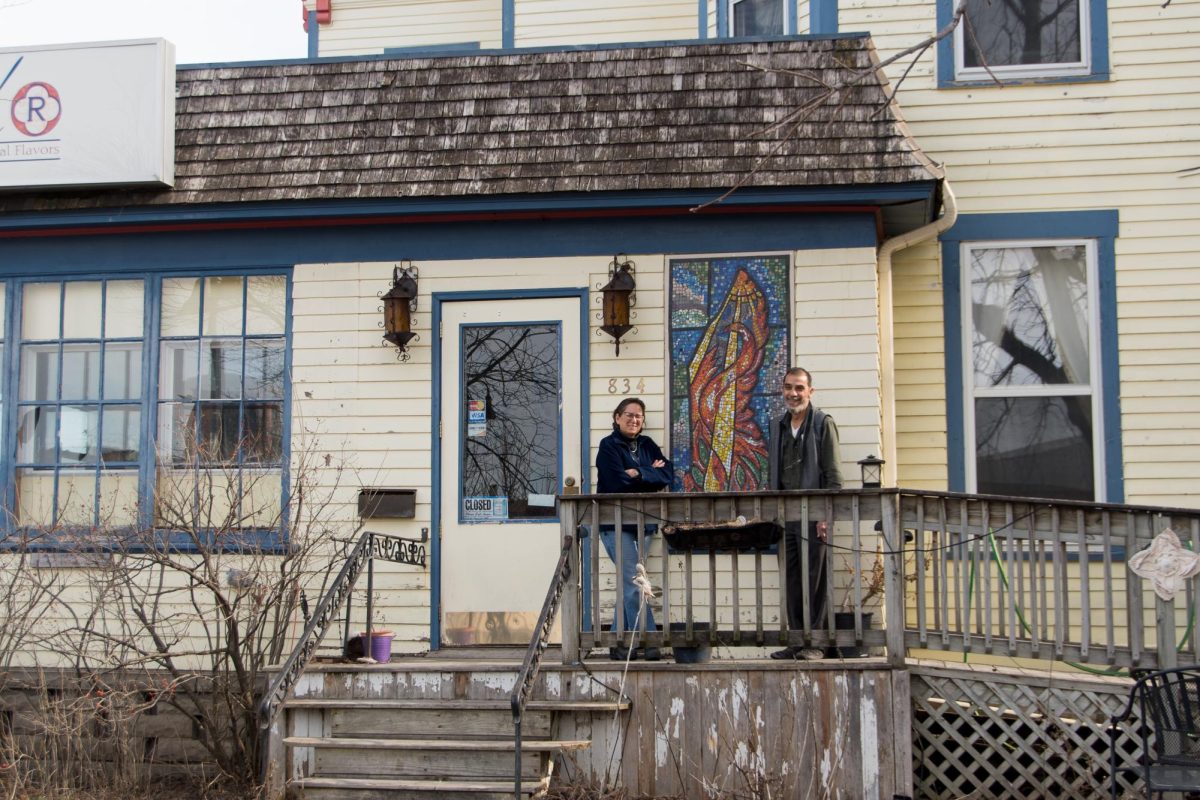
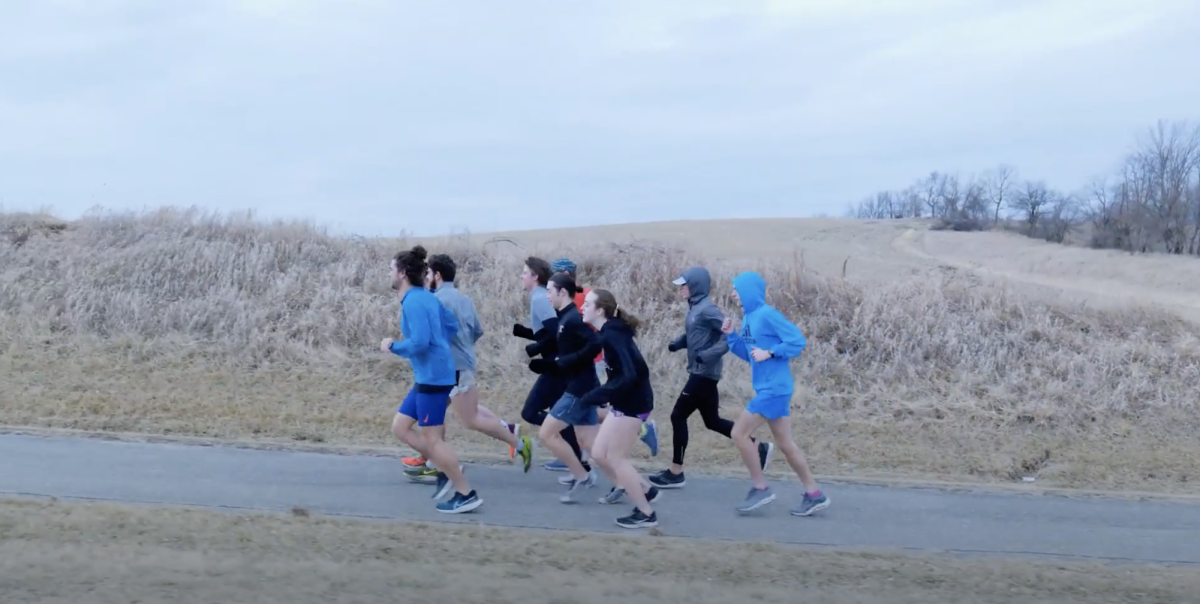




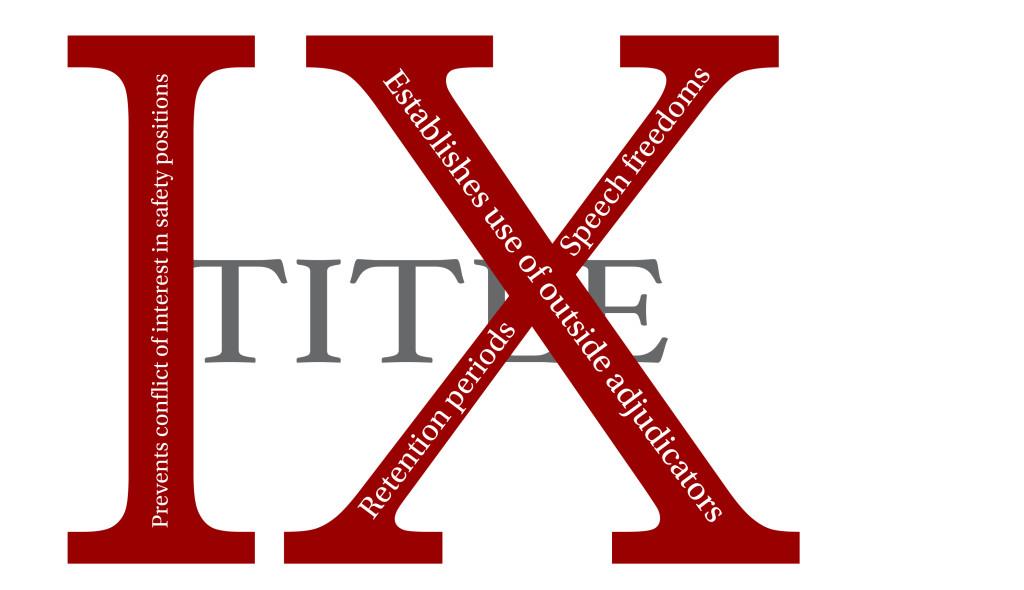
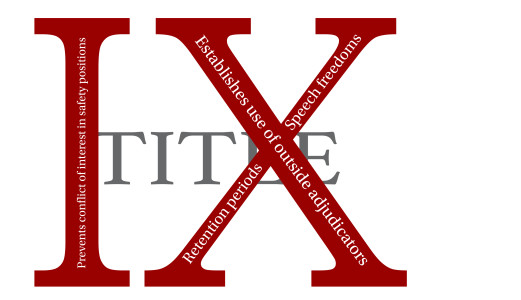
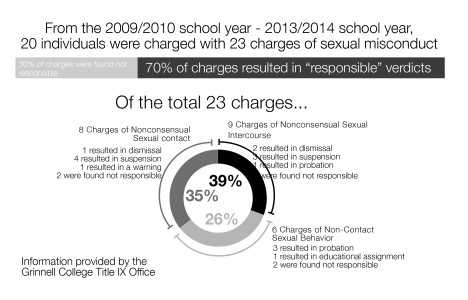
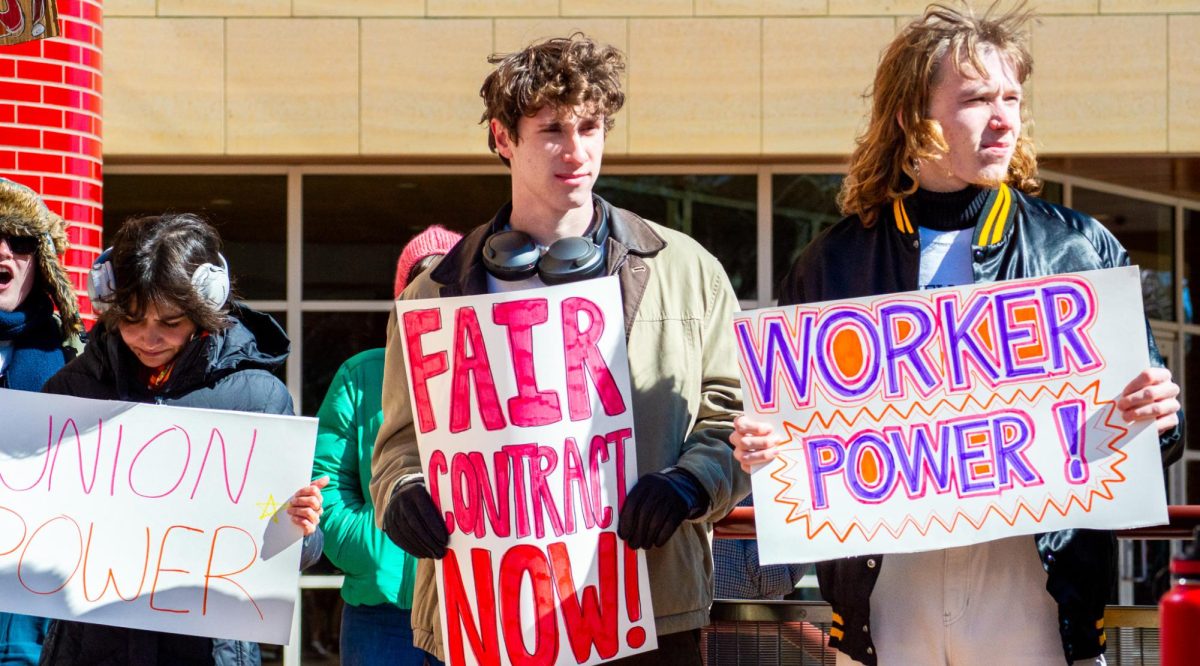





Bob SGAget • Feb 17, 2015 at 2:02 pm
“Dissenting Voices” seems more like “Groupthinking Voices” to me. What is the good in informing everyone on campus that a case of sexual misconduct occurred? Grinnell is a small place and perhaps it is necessary to consider if the victim wants people to find out (because they surely will). It also seems like it will promote a witch-hunting vigilantism before the evidence has been fully assessed. What do I know though, as an alum I wallow in ignorance.